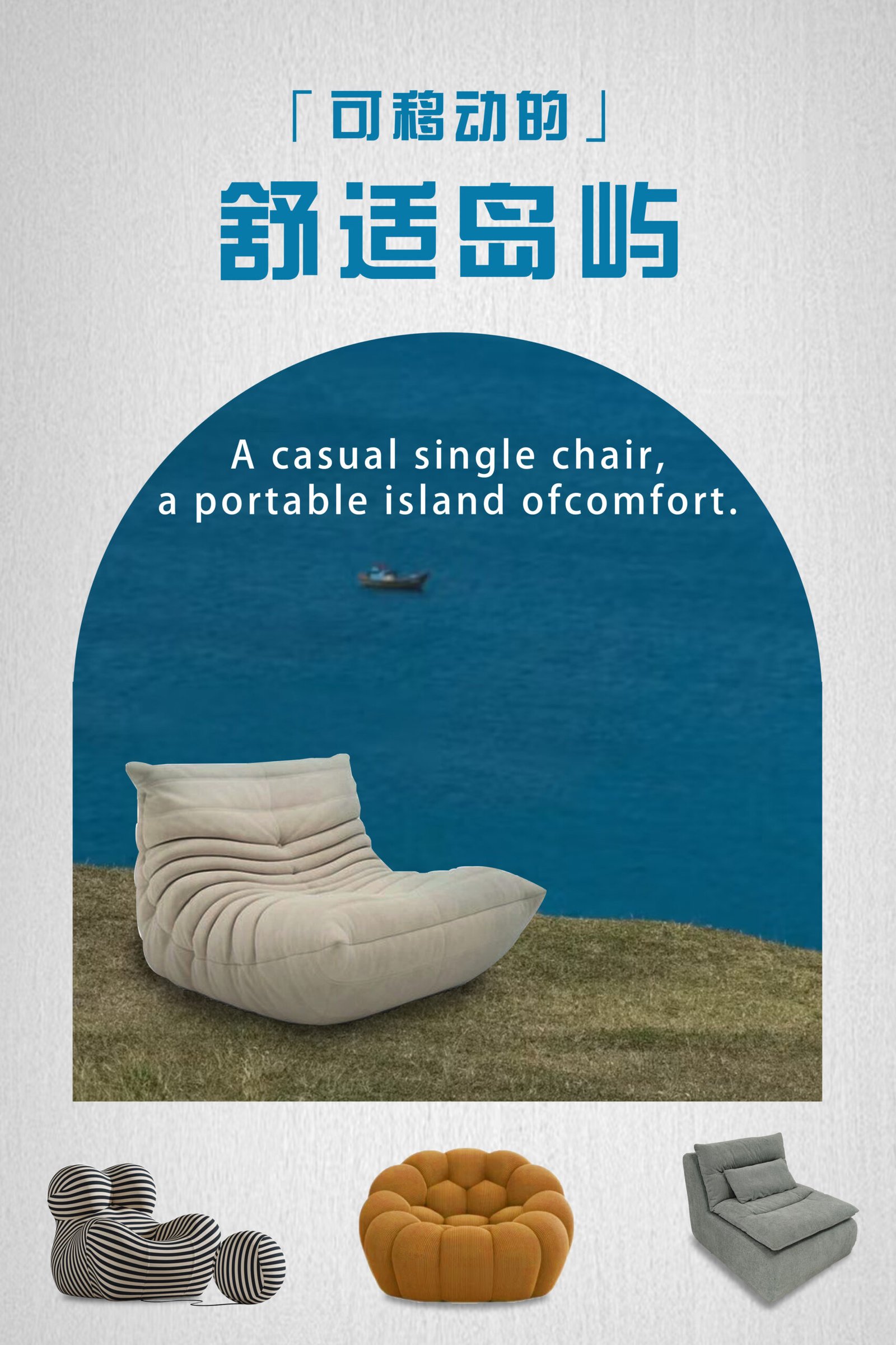
A compressed sofa may save space and cut costs—but if the outer fabric is wrong, it won't last, feel good, or look right.
The outer fabric of a compressed sofa affects comfort, durability, aesthetics, cleaning, and overall user experience—making it a critical part of the product.
When I first started producing compressed sofas, I underestimated how much fabric mattered. Customers would comment less about the frame—and more about how the fabric felt, aged, or handled stains.
How does the outer fabric affect durability?
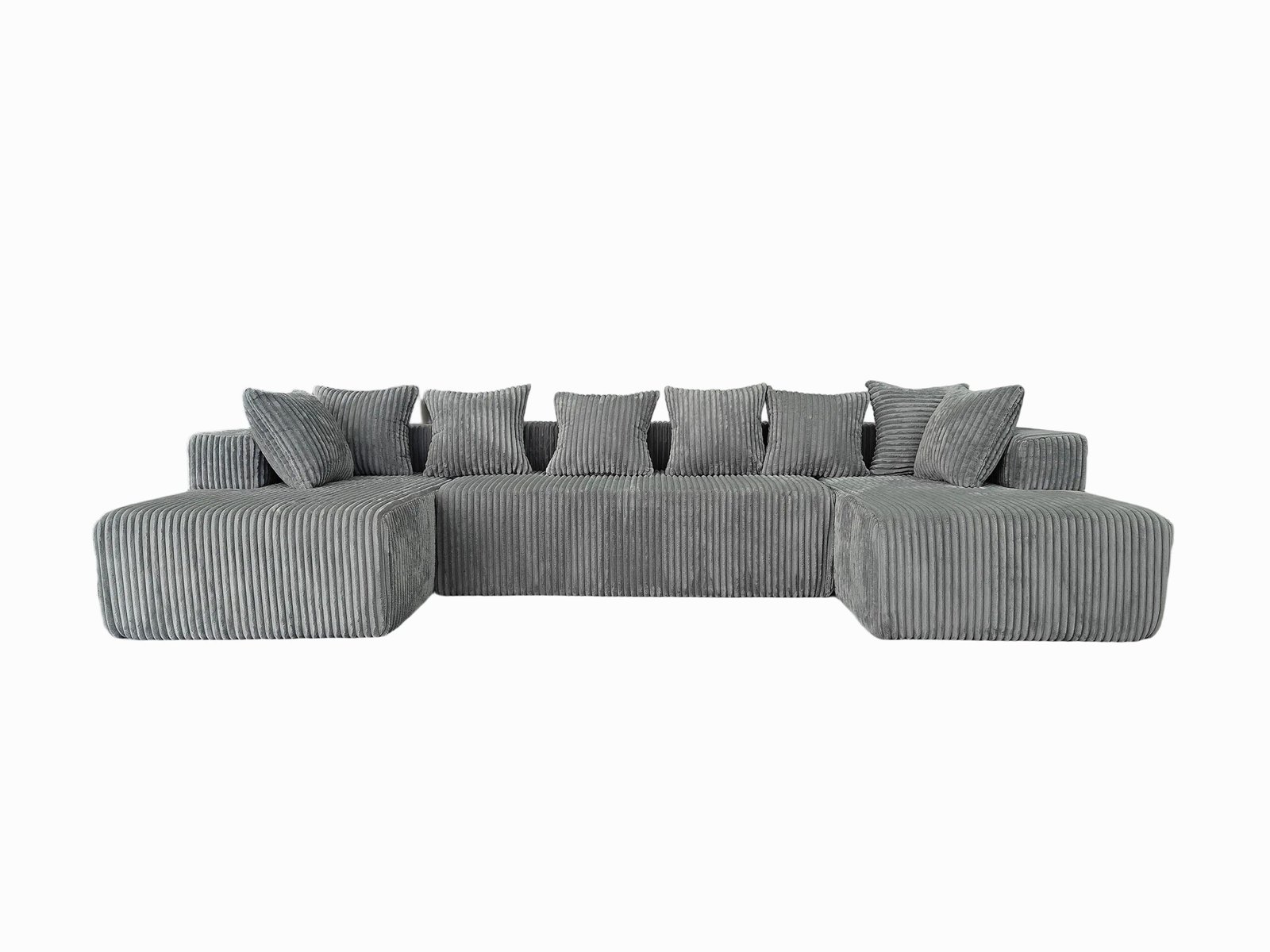
A sofa gets daily use. Sit, lie down, toss a bag, spill coffee—it all happens on the fabric.
High-quality outer fabrics like microfiber, leather, or reinforced polyester resist wear, fading, and tearing, ensuring the sofa lasts longer.
Durable fabric is especially important for compressed sofas because they are often vacuum-sealed and folded. If the fabric can't handle compression and expansion, it will show early signs of stress.
Common Durable Fabrics
| Fabric Type | Strength Rating | Ideal For |
|---|---|---|
| Microfiber | High | Pet owners, heavy use |
| Faux Leather | Medium–High | Spill zones, easy clean-up |
| Woven Polyester | High | Student or office use |
I recommend abrasion-tested fabric with a Martindale rating of 15,000+ for any compressed sofa used daily.
Does fabric impact the comfort of a compressed sofa?

Yes—and it’s one of the first things you’ll notice. Even the best inner foam won’t feel good if the cover is rough or sticky.
The outer fabric affects the sofa’s softness, warmth, breathability, and overall tactile feel.
Velvet and chenille feel plush and cozy. Linen or cotton blends feel cooler and textured. Leather feels sleek and firm. Each choice brings a different comfort experience.
Comfort Consideration Matrix
| Fabric Type | Texture | Temp Feel | Best For |
|---|---|---|---|
| Velvet | Plush | Warm | Cozy lounge vibes |
| Linen Blend | Textured | Cool | Hot climates |
| PU Leather | Smooth | Neutral | Wipeable comfort |
For example, our best-selling compact sofa uses brushed polyester—it offers both softness and durability at a student-friendly price.
How does fabric choice influence the sofa’s look?
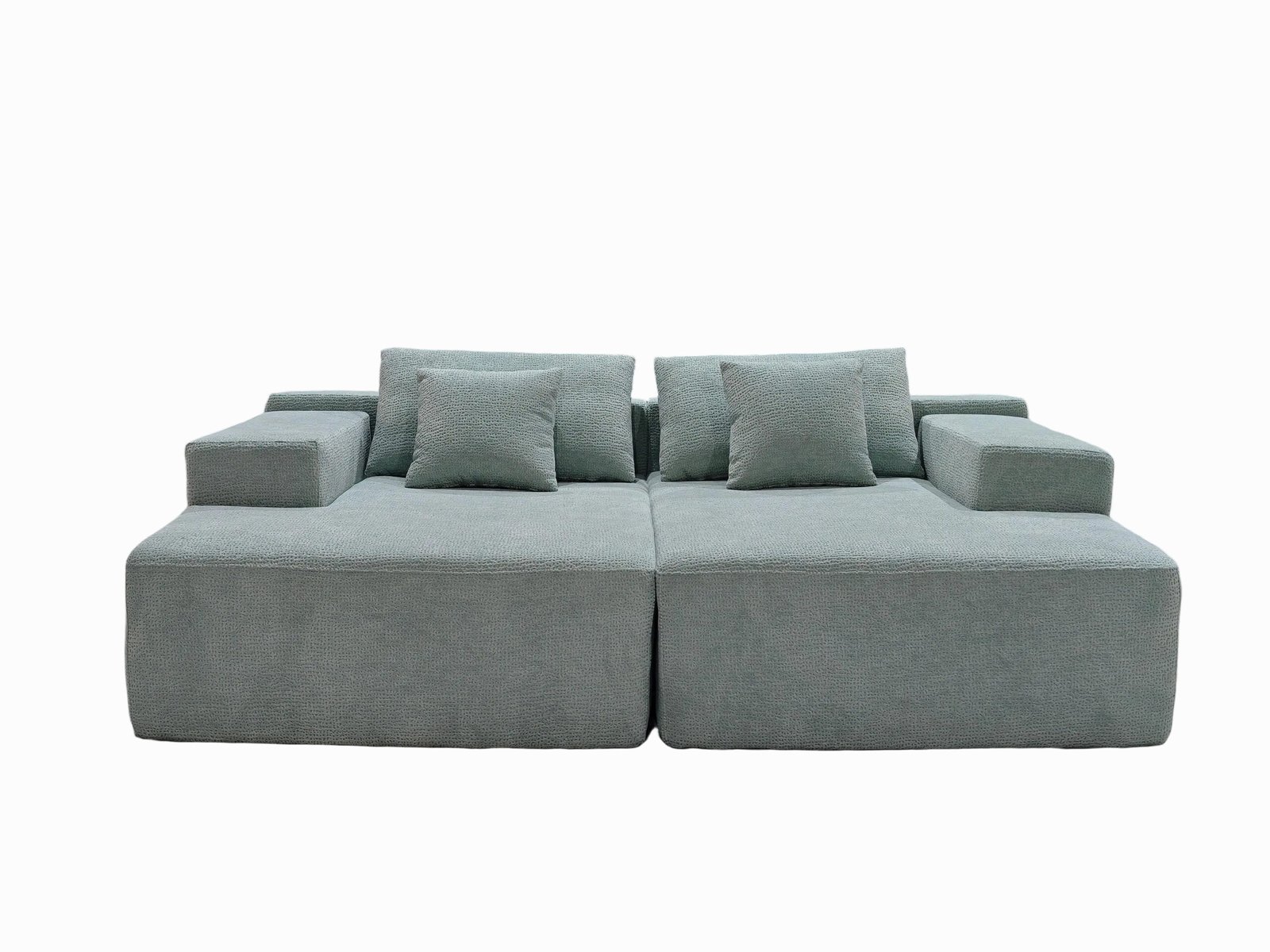
Design matters—especially in small spaces. Your sofa often becomes the visual anchor of a room.
Fabric determines the color, texture, sheen, and overall vibe of the sofa—impacting the room’s style.
Neutral woven fabrics blend into minimalist or Scandinavian designs. Bold velvets or leathers create contrast in industrial or luxury-themed spaces.
Visual Impact by Fabric Style
| Fabric Look | Matches Well With |
|---|---|
| Light Linen | Minimalist, boho, Japandi |
| Dark Faux Leather | Industrial, masculine, vintage |
| Mid-tone Tweed | Scandinavian, modern classic |
I once helped a client design an Airbnb using only compressed sofas—but each unit felt different just by changing the outer fabric tone and texture.
Is some fabric easier to clean and maintain?

Yes—and this is one area where cheap fabric can cost you more long-term.
Microfiber and synthetic fabrics are easier to spot clean, vacuum, and resist stains, while natural fabrics may need more maintenance.
If you’re furnishing rentals, dorms, or family spaces, this matters. Choose washable, tight-weave fabric to avoid headaches.
Fabric Cleaning & Care Tips
- Use removable covers if available
- Blot stains early with water + mild soap
- Avoid bleach or abrasive cleaners
- Test fabric spray on a small area first
We always label care instructions clearly. Most compressed sofa covers from HSM can be machine washed under 30°C.
Can fabric affect allergens and air quality?
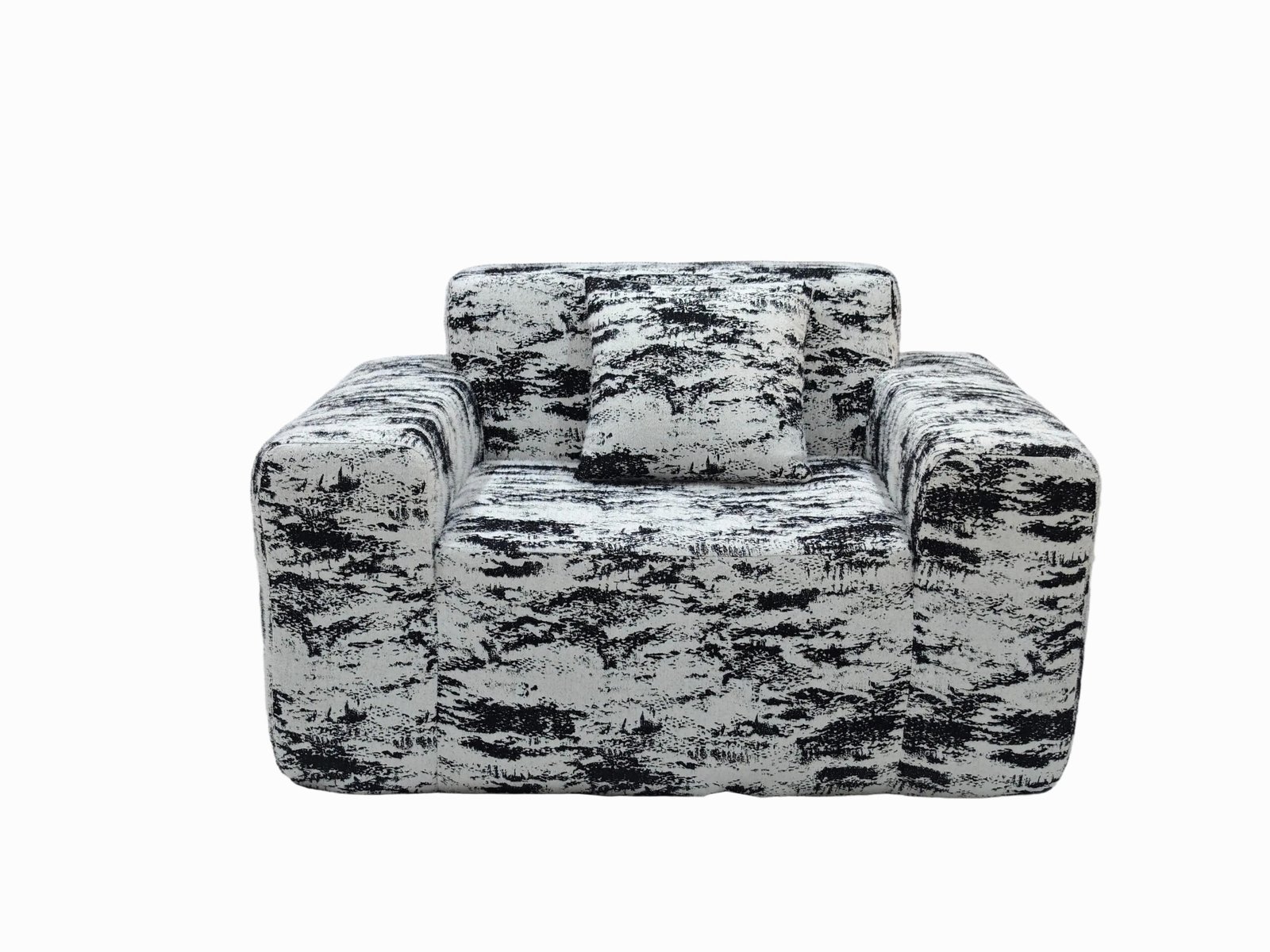
Yes—especially in shared or closed environments like dorms or offices.
Some fabrics trap dust, dander, and lint. Hypoallergenic choices like microfiber or leather repel particles, supporting cleaner indoor air.
We recommend sealed-weave fabrics for customers sensitive to allergens. These are less likely to harbor dust mites or trap mold spores after humidity exposure.
What about environmental impact?
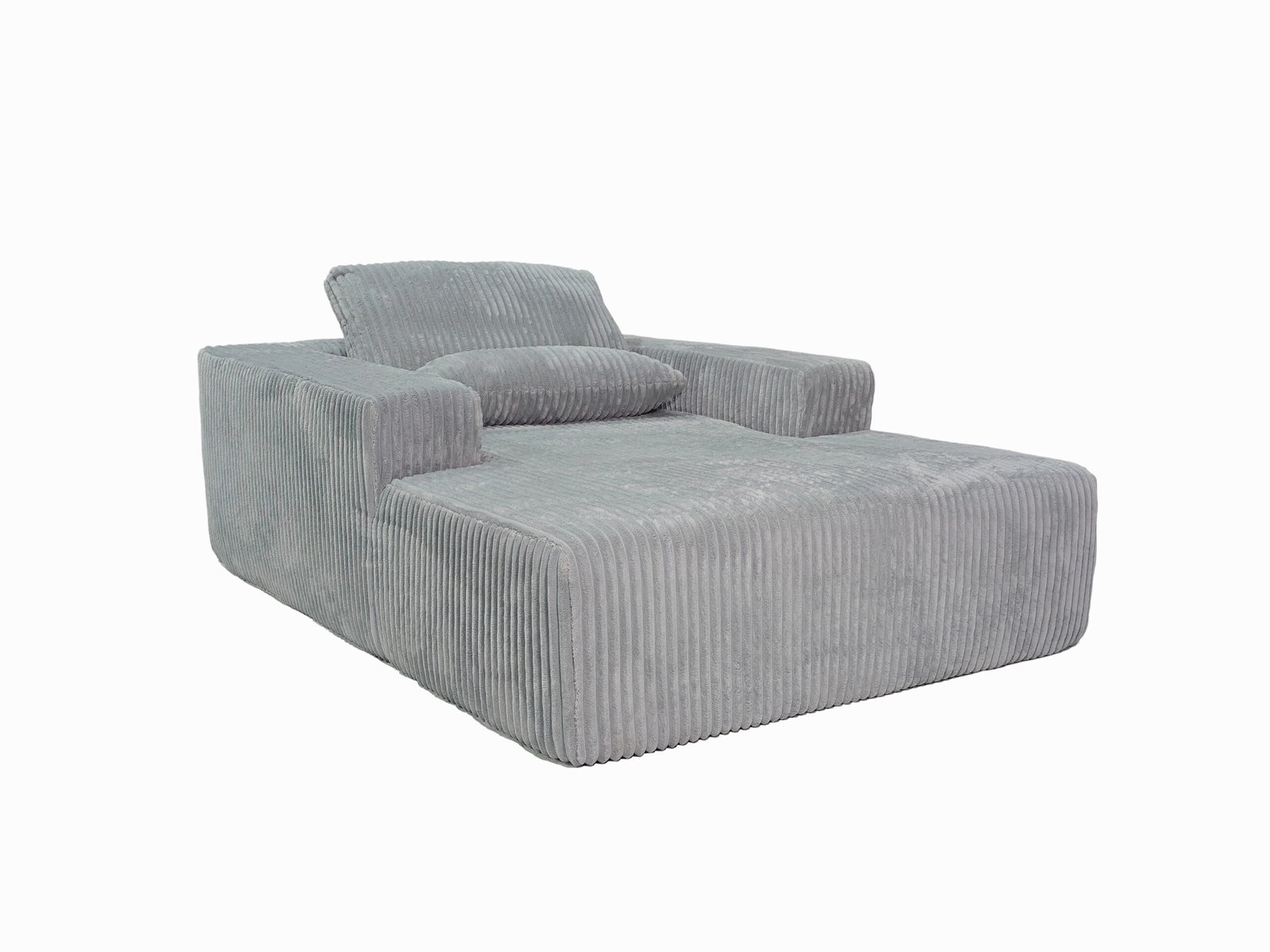
Fabric isn’t just about function—it’s also about sustainability.
Choosing OEKO-TEX certified or recycled fabrics reduces environmental impact without sacrificing performance.
At HSM, we’re developing sofa lines using recycled PET fiber upholstery, which reuses plastic waste while staying soft and durable.
Sustainable Fabric Options
| Material | Sustainability Score | Notes |
|---|---|---|
| Recycled Polyester | High | Made from plastic bottles |
| Organic Cotton | Medium | Needs proper upkeep |
| PU Leather | Medium–Low | Less impact than real leather |
Customers now often ask, “Is this fabric eco-friendly?”—and we’re glad they do.
Conclusion
The outer fabric defines how a compressed sofa feels, functions, and fits into your space—so choose it with care.